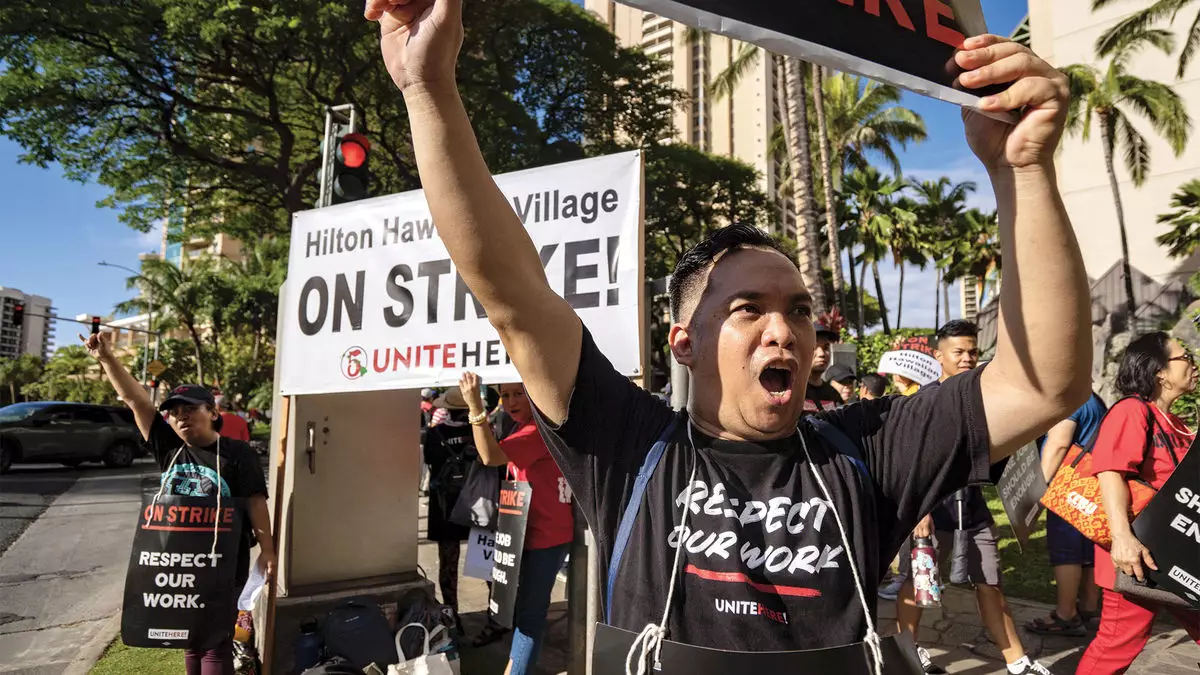The recent Labor Day weekend walkouts staged by 10,000 hotel workers across nine U.S. cities, organized by the labor union Unite Here, have caused quite a stir in the hospitality industry. The strikes, affecting 25 properties operated by major chains including Hilton, Hyatt, and Marriott International, have brought to light the underlying issues faced by hotel workers such as inadequate wages, unfair staffing levels, and service cuts that were implemented during the pandemic.
The demands made by the hotel workers, as highlighted by Gwen Mills, international president of Unite Here, shed light on the challenging conditions faced by employees in the hotel industry. Many workers are struggling to make ends meet, especially in expensive urban markets, where the cost of living is high compared to their earnings. The service cuts implemented during the pandemic have resulted in job losses and increased workloads for the remaining staff, making it difficult for them to support their families.
According to industry experts like David Sherwyn, the service cuts implemented by hotels have significantly altered the hospitality landscape. These cuts have led to reduced work hours and pay for hotel employees across various departments such as bell stands, front desks, and food and beverage outlets. The emergence of technologies like electronic check-in and food delivery services has further impacted the need for traditional hotel services, leading to operational challenges for hotel operators.
In response to the strikes, major hotel chains like Hilton, Hyatt, and Marriott International have issued statements emphasizing their commitment to fair bargaining and cooperation with unions like Unite Here. However, the effectiveness of their offers in resolving the disputes remains uncertain. While some progress has been made in restoring services like daily housekeeping, negotiations are ongoing regarding the nuances of these policies and the overall welfare of hotel workers.
The outcome of the ongoing negotiations between the hotel workers and management will have a significant impact on the resolution of these disputes. According to Sherwyn, the next week or two will be critical in determining whether the conflicts will be resolved quickly or escalate into prolonged strikes. Public sentiment and support for the hotel workers will also play a crucial role in shaping the outcome of these disputes, as the hospitality industry’s customer-facing nature poses a unique challenge compared to other sectors.
The hotel worker strikes in the U.S. have raised important issues surrounding labor rights, fair wages, and working conditions in the hospitality industry. The outcome of these disputes will not only affect the livelihoods of hotel workers but also shape the future of labor relations in the industry. It is essential for both hotel management and labor unions to engage in constructive dialogue and find mutually beneficial solutions to ensure a fair and sustainable working environment for all parties involved.


Leave a Reply